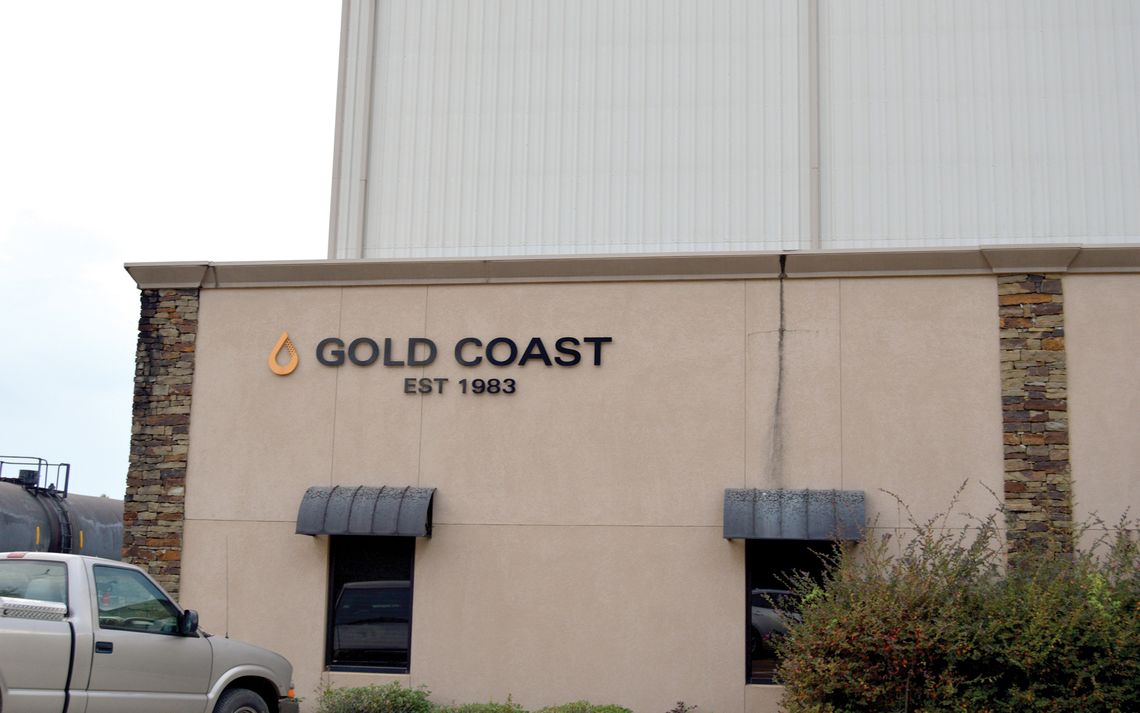
The Mississippi Environmental Quality Permit Board voted unanimously at its meeting last week to revoke the wastewater permit for a Brandon-based chemical plant that allowed it to dump its wastewater in Pelahatchie.
Gold Coast Commodities can reapply for a permit, but the Permit Board’s action means the company has been ordered three times by the DEQ to stop disposing of its wastewater in three different cities in the metro area: first Brandon, then Jackson and now Pelahatchie, where the company had constructed a lagoon with aerators in an agreement reached with city officials.
The DEQ has ordered the company to pump out the wastewater from the lagoon, which has resulted in numerous odor complaints filed with the environmental watchdog agency by area residents.
The board denied a continuance request by Gold Coast to postpone the matter to a later date.
Gold Coast could also be facing fines as the Mississippi Board of Environmental Quality, the DEQ’s governing board, is convening an evidentiary hearing for today, November 19 over the Pelahatchie site.
"My perspective about the odor (from the Pelahatchie site) is that it is not particularly offensive and not particularly strong," said Sam Hardin, an engineer who works for Starkville-based Clearwater Consulting, a company contracted by Gold Coast. He said the company had problems with some of the five aerators on site, but removed and repaired them in an expedient manner.
The company was issued its permit for the lagoons and, after treatment, land application in August 2019. The DEQ later issued a notice of violation over storm water runoff from the construction of the lagoon. An inspection on June 12 of this year found that Gold Coast had not installed the required aerators or hook electric lines to them and didn’t emplace the required depth markers in the lagoon itself. Another notice of violation was issued on July 20.
When the company turned on the aerators in July, emergency personnel and others were exposed to dangerous hydrogen sulfide gas at concentrations above the 10-minute emergency maximum recommended by the U.S. Occupational Health and Safety Administration. Eleven times DEQ officials noticed strong odors emanating from the facility.
The DEQ issued a water contact advisory in September after more than 00,000 gallons of wastewater was released accidentally into nearby Dry Creek. On September 11, the DEQ issued an order demanding the company fix the issues with the disposal lagoon within two weeks of the order.
Since the DEQ issued a cease and desist letter for disposing of its wastewater in Pelahatchie, the company has curtailed production and is storing its wastewater on site in railcars and in storage tanks. Company officials said they’ve tried to stay within the guidelines of the permit, but that they won’t be able to stay in business at the Brandon site if forced to ship their wastewater outside the state.
"Things have not gotten better," said Lane Stubbs, whose father Lewis Mashburn is the closest property owner to the Pelahatchie disposal site. "We keep getting reassurances that this will be taken care of it. The smell burns your nose and your throat and that doesn’t seem safe to me. I don’t like my father living there having to endure that."
She said that the odor was so bad that the scent clung to her brother’s clothes even after a 5-minute drive home.
In a lawsuit filed by the city of Brandon, where the company dumped its wastewater for years, the company is accused of damaging the city’s sewer system that ultimately empties into the city of Jackson’s system.
Gold Coast then used a third-party contractor to truck and another to dump the wastewater directly into Jackson’s system. The owner of this company, Rebel High Velocity Sewer Services, was ordered to stop dumping Gold Coast waste into Jackson’s system and he was later indicted by the federal government for violations of the Clean Water Act.
A sample of the wastewater taken from where the contractor was dumping it into Jackson’s system exploded in the lab under test.

Comment
Comments